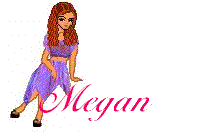Freestyle Machine Embroidery

Whilst this is a great thing, and has lead to a resurgence in popularity of machine embroidery, it can result in a “mass produced” effect, and also lead to a lack of imagination in this type of work.
Prior to these highly computerised machines, normal sewing machines were used to do machine embroidery, with your stitch choices decided by size and spacing of the stitches (the most advanced machines could do satin stitch using a long narrow zig zag). Some of the more expensive or advances machines had a cam or a plastic card that would store some fancy stitches. My own much-loved sewing machine (inherited from my mother – but before that I owned a similar model to hers) is from approximately 1963 and is an Elna. It was the top of the range for the time, and came with a set of 10 cams that would be locked into place that allowed some basic designs (daisy, vine with leaves) or some specialised stitches (buttonholes, and a two thread overlocker style stitch are my two favorites).
With only these basic tools, machine embroiderers worked much as hand embroiderers, and you could see the skill those more experienced in the medium displayed.
It is still an area in which those who do machine embroidery could challenge themselves and expand their skills.
Instead of using a more complex digitised design, take a step away from the digitiser and start to increase your skill with freestyle embroidery.
One of the easiest ways to begin this is to use your machine to stitch cord or braids onto articles – cushion covers look terrific, and they can be as bright as you want (for children’s rooms) or in tones that reflect your home decoration.
This technique also is very effective to create decorations on denim (e.g. denim jacket).
You could also transfer a design to the fabric you want to embroider on and then use your machine to stitch the design – using alternating stitch lengths and widths.
It may seem that this is very time consuming, and your first attempts will be messy (which is where your sampler comes in!), but you will improve with practice, and the ability to stitch freestyle machine embroidery will enhance your work.
The best thing about freestyle machine embroidery is that you don’t need a specialist machine to do it. Any sewing machine that will do a straight and a zig zag stich will do!
I’ve listed below some books that may inspire and assist you.
Recommended Reading
Freestyle Machine Embroidery
Your Machine's Decorative Stitches
Dimensional Machine Embroidery: 10+ Specialty Techniques for Amazing Results (Book & DVD)
Is there anything that you would particularly like to see an article on? If so, please contact me with your suggestions.
Happy Stitching

© 2011 Megan McConnell
This site needs an editor - click to learn more!
You Should Also Read:
Transferring Embroidery Patterns to Fabric
Related Articles
Editor's Picks Articles
Top Ten Articles
Previous Features
Site Map
Content copyright © 2023 by Megan McConnell. All rights reserved.
This content was written by Megan McConnell. If you wish to use this content in any manner, you need written permission. Contact
BellaOnline Administration
for details.


